We are guided by an expert Editorial Board of world renowned scientists and engineers, ensuring that Molecular Systems Design & Engineering is truly positioned to help build and support an emerging molecular engineering community. Each member brings a wealth of expertise in their own aspect of molecular engineering, contributing to an overall vision for the future of the field.
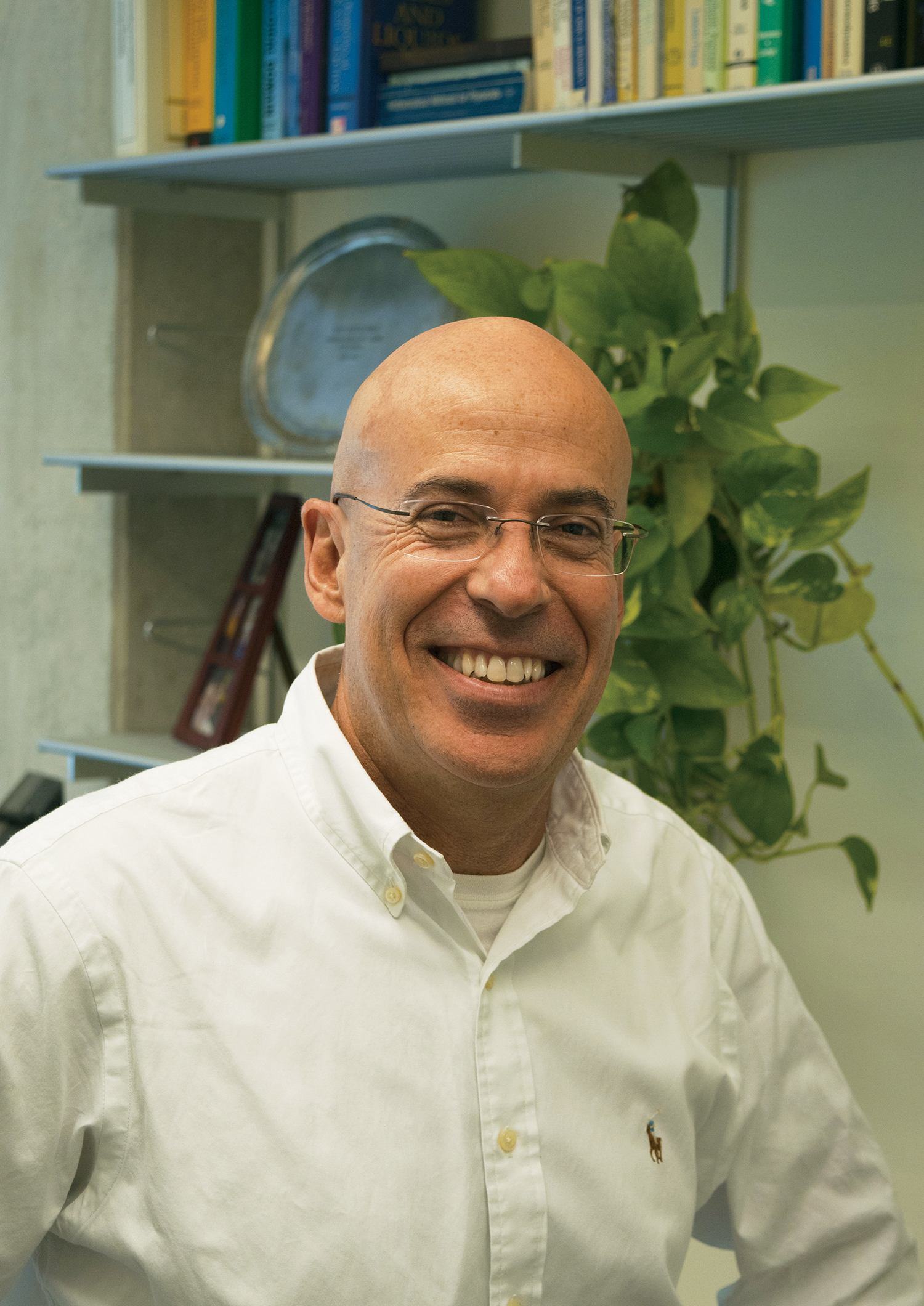
© University of Chicago
Juan de Pablo is Liew Family Professor in Molecular Engineering at the University of Chicago’s Institute for Molecular Engineering, USA, and Molecular Systems Design & Engineering Editorial Board Chair. His research involves theory and simulation at a molecular level, studying the properties of molecules and how they can be assembled in an organised manner to have specific functions. His work with Paul Nealey into block copolymer self-assembly has proved a crucial development for the semiconductor industry. He also studies protein and DNA folding, glassy materials, and liquid crystals. See his recent papers in Soft Matter:
Homeotropic nano-particle assembly on degenerate planar nematic interfaces: films and droplets, Alejandro Londoño-Hurtado, Julio C. Armas-Pérez, Juan P. Hernández-Ortiz and Juan J. de Pablo, Soft Matter, 2015, 11, 5067–5076;
A molecular view of the role of chirality in charge-driven polypeptide complexation, K. Q. Hoffmann, S. L. Perry, L. Leon, D. Priftis, M. Tirrell and J. J. de Pablo, Soft Matter, 2015, 11, 1525–1538.
Professor de Pablo’s work is partially motivated by solving some of the major technological and humanitarian challenges of our time, but equally by a fascination for working on fundamental problems and developing a better understanding of nature. His recent interview in Chemistry World explains how his institute is structured to drive the connection between the two. He is a fellow of the AAAS and the APS, and received the 2011 Charles Stine Award from the American Institute of Chemical Engineers.
 Samson Jenekhe is Boeing-Martin Professor of Chemical Engineering and Professor of Chemistry at the University of Washington, USA, and a Scientific Editor for Molecular Systems Design & Engineering, helping to ensure that articles meet the stringent criteria required for publication in the journal. His expertise lies in polymers – their design, synthesis and assembly; understanding and control of their electronic and photonic properties; and their implementation in device applications. Take a look at his work in ChemComm:
Samson Jenekhe is Boeing-Martin Professor of Chemical Engineering and Professor of Chemistry at the University of Washington, USA, and a Scientific Editor for Molecular Systems Design & Engineering, helping to ensure that articles meet the stringent criteria required for publication in the journal. His expertise lies in polymers – their design, synthesis and assembly; understanding and control of their electronic and photonic properties; and their implementation in device applications. Take a look at his work in ChemComm:
Side chain engineering of n-type conjugated polymer enhances photocurrent and efficiency of all-polymer solar cells, Ye-Jin Hwang, Taeshik Earmme, Selvam Subramaniyan and Samson A. Jenekhe, Chem. Commun., 2014, 50, 10801–10804.
Professor Jenekhe was named by Thomson Reuters as one of the top 100 materials scientists of the decade (2000–2010), and also received the 2014 Charles Stein Award from the American Institute of Chemical Engineers.
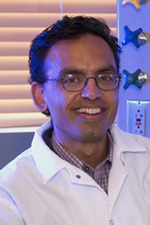 Niren Murthy is Professor in the Department of Bioengineering at the University of California at Berkeley, USA, and a Scientific Editor for Molecular Systems Design & Engineering, helping to ensure that articles meet the stringent criteria required for publication in the journal. His research is focused on the development of new molecules and materials for molecular imaging and drug delivery. A new class of fluorescent probes – hydrocyanines – that can be used to detect reactive oxygen species (ROS) in vivo and in vitro have been developed in his lab. His recent ChemComm article presents a new polyketal type polymer with application in gene and drug delivery:
Niren Murthy is Professor in the Department of Bioengineering at the University of California at Berkeley, USA, and a Scientific Editor for Molecular Systems Design & Engineering, helping to ensure that articles meet the stringent criteria required for publication in the journal. His research is focused on the development of new molecules and materials for molecular imaging and drug delivery. A new class of fluorescent probes – hydrocyanines – that can be used to detect reactive oxygen species (ROS) in vivo and in vitro have been developed in his lab. His recent ChemComm article presents a new polyketal type polymer with application in gene and drug delivery:
A biodegradable adamantane polymer with ketal linkages in its backbone for gene therapy, Santanu Maity, Priya Choudhary, Manu Manjunath, Aditya Kulkarni and Niren Murthy, Chem. Commun., 2015, 51, 15956–15959.
Professor Murthy’s hydrocyanine ROS probes are now commercially available under the name ROSstar.
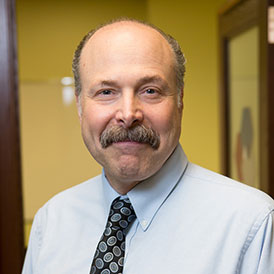 David Awschalom is Liew Family Professor in Molecular Engineering at the University of Chicago’s Institute for Molecular Engineering, USA, and a Molecular Systems Design & Engineering Editorial Board Member. He is a leading authority in the field of spintronics – understanding and using electron spin behaviour in solid state systems for device applications in areas such as quantum information and sensing. He also studies optical and magnetic phenomena in semiconductors and nanoscale structures. Among numerous awards, he was the recipient of the American Physical Society’s 2015 Julius Edgar Lilienfield Prize for his research into the physics of spin-coherent materials and systems, ‘as well as his superb lecturing on these topics to diverse audiences‘. A great example of this is his recent talk at Physics@FOM on ‘Abandoning Perfection for Quantum Technolgies‘. Professor Awschalom is a fellow of the American Physical Society and the American Associate for the Advancement of Science.
David Awschalom is Liew Family Professor in Molecular Engineering at the University of Chicago’s Institute for Molecular Engineering, USA, and a Molecular Systems Design & Engineering Editorial Board Member. He is a leading authority in the field of spintronics – understanding and using electron spin behaviour in solid state systems for device applications in areas such as quantum information and sensing. He also studies optical and magnetic phenomena in semiconductors and nanoscale structures. Among numerous awards, he was the recipient of the American Physical Society’s 2015 Julius Edgar Lilienfield Prize for his research into the physics of spin-coherent materials and systems, ‘as well as his superb lecturing on these topics to diverse audiences‘. A great example of this is his recent talk at Physics@FOM on ‘Abandoning Perfection for Quantum Technolgies‘. Professor Awschalom is a fellow of the American Physical Society and the American Associate for the Advancement of Science.
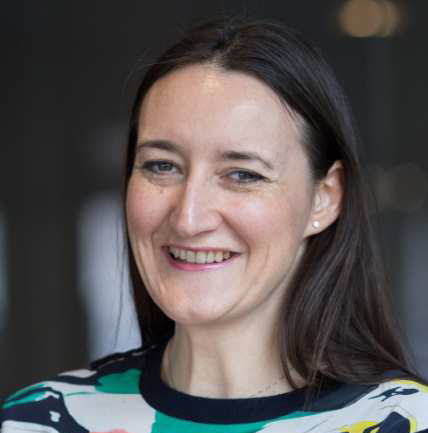 Claire Adjiman is Professor of Chemical Engineering at Imperial College London, UK, and a Molecular Systems Design & Engineering Editorial Board Member. Her research focuses on how molecular-level considerations can be brought into process design through modelling and optimisation – for example, some of her recent work uses a combination of quantum mechanical calculations and computer aided molecular design to determine an optimal solvent that increases the rate of a chemical reaction. She is a co-director of the Institute for Molecular Science and Engineering, which targets solving problems related to the world’s grand challenges through molecular innovation. Take a look at her inaugural lecture from 2013: ‘Molecules on Best Behaviour: The Engineering of Molecular Systems‘. Professor Adjiman is the recipient of an EPSRC Leadership Fellowship until 2017 as a future global research leader.
Claire Adjiman is Professor of Chemical Engineering at Imperial College London, UK, and a Molecular Systems Design & Engineering Editorial Board Member. Her research focuses on how molecular-level considerations can be brought into process design through modelling and optimisation – for example, some of her recent work uses a combination of quantum mechanical calculations and computer aided molecular design to determine an optimal solvent that increases the rate of a chemical reaction. She is a co-director of the Institute for Molecular Science and Engineering, which targets solving problems related to the world’s grand challenges through molecular innovation. Take a look at her inaugural lecture from 2013: ‘Molecules on Best Behaviour: The Engineering of Molecular Systems‘. Professor Adjiman is the recipient of an EPSRC Leadership Fellowship until 2017 as a future global research leader.
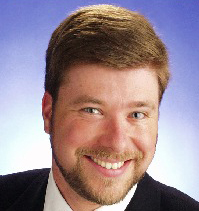 Marcus Müller is Professor at the Institute for Theoretical Physics, Göttingen, Germany, and a Molecular Systems Design & Engineering Editorial Board Member. He studies the physics of soft matter, including polymer solutions, molecular self-assembly, wetting phenomena and biological problems, using computational simulation and numerical methods. His recent Soft Matter paper looks at the process of dynamin-mediated membrane fission at molecular resolution using a coarse-grained model:
Marcus Müller is Professor at the Institute for Theoretical Physics, Göttingen, Germany, and a Molecular Systems Design & Engineering Editorial Board Member. He studies the physics of soft matter, including polymer solutions, molecular self-assembly, wetting phenomena and biological problems, using computational simulation and numerical methods. His recent Soft Matter paper looks at the process of dynamin-mediated membrane fission at molecular resolution using a coarse-grained model:
Coarse-grained simulation of dynamin-mediated fission, Marc Fuhrmans and Marcus Müller, Soft Matter, 2015, 11, 1464–1480.
Professor Müller was a previous winner of the John H. Dillon Medal of the American Physical Society for outstanding accomplishment and unusual promise in research in polymer physics.
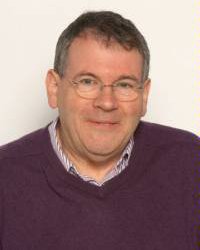 Paul Raithby is Professor of Inorganic Chemistry at the University of Bath, UK, and a Molecular Systems Design & Engineering Editorial Board Member. His research interests lie in materials design – connecting the molecular structure of materials and their properties – across areas including crystallography, organometallic oligomers & polymers and transition metal clusters & catalysts. Read his work on the behaviour of molecular switches with potential as piezochromic sensors in CrystEngComm:
Paul Raithby is Professor of Inorganic Chemistry at the University of Bath, UK, and a Molecular Systems Design & Engineering Editorial Board Member. His research interests lie in materials design – connecting the molecular structure of materials and their properties – across areas including crystallography, organometallic oligomers & polymers and transition metal clusters & catalysts. Read his work on the behaviour of molecular switches with potential as piezochromic sensors in CrystEngComm:
High-pressure crystallographic and spectroscopic studies on two molecular dithienylethene switches, Christopher H. Woodall, Simon K. Brayshaw, Stefanie Schiffers, David R. Allan, Simon Parsons, Rafael Valiente and Paul R. Raithby, CrystEngComm, 2014, 16, 2119–2128.
Professor Raithby is Principle Investigator for the EPSRC Directed Assembly Network grant, with over 1000 academic and industry members developing control over the production of materials and substances with targeted properties.
To keep up with the news from Molecular Systems Design & Engineering, including the latest Editorial Board appointments, be sure to sign up to our e-alerts and follow us on Twitter.
Comments Off on Introducing the Molecular Systems Design & Engineering Editorial Board


















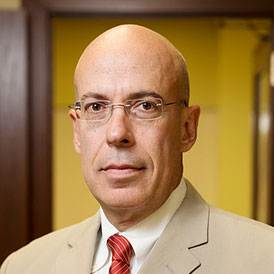



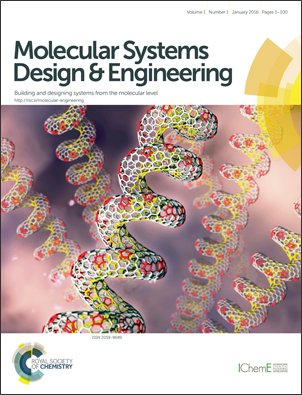 A joint venture between the Royal Society of Chemistry and
A joint venture between the Royal Society of Chemistry and